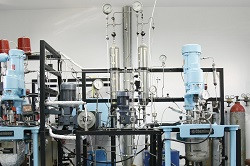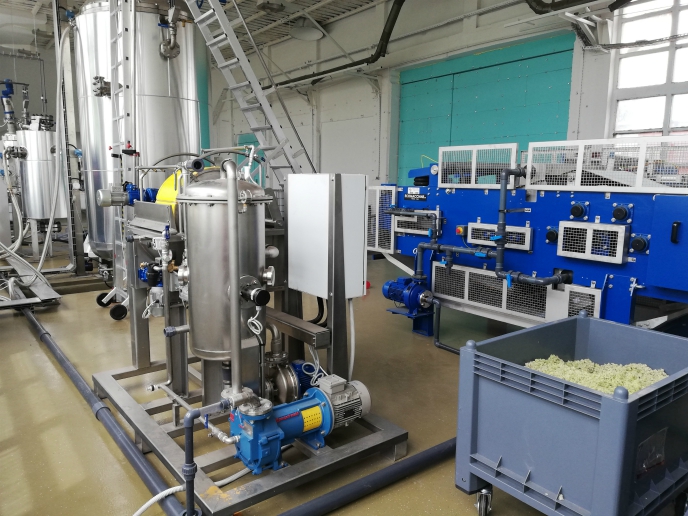An adaptive and integrated computational framework for intensified processes in the chemical and biochemical industries
The integrated framework at the heart of the project was successfully applied to four industrial processes. These were a pharmaceutical crystallisation process, two polymerisation (i.e. suspension and inverse suspension) processes, an organic oxidation with hydrogen peroxide process, and finally a monoclonal antibodies production and purification system. Such a framework facilitated OPTICO’s ultimate goal, that being the optimisation or/and redesign of existing equipment, as well as the design of new modular equipment for the development of dynamic, adaptable and flexible intensified processes. A major innovation of OPTICO(opens in new window) was towards the establishment of a fully integrated Process integration (PI) framework of modelling, simulation, optimisation and control tools, as well as online monitoring and process analytics tools that can be used over a range of computer-aided process engineering activities. ‘Process integration is the key technological pathway to drastically improve the sustainability of the chemical and biopharmaceutical process by replacing the existing, inefficient plant equipment with new, intensified operations,’ explained project coordinator Prof. Costas Kiparissides. PI can comprises the development of novel equipment and production methods that can bring dramatic improvements in manufacturing and processing and lead to safer, cleaner, smaller and cheaper production rates. ‘OPTICO aimed to extend the present state-of-the-art in multiscale modelling of chemical and biochemical systems by integrating models at various length/time scales into a unified computational framework,’ Prof. Kiparissides elaborated. From a practical perspective, OPTICO chose four key enabling technologies as a means to facilitate and highlight the benefits of its new framework to its four selected chemical/biochemical processes. Online sensors were implemented to the selected industrial processes for real-time monitoring of product quality, with their robustness being assessed via the implementation of complementary sensor technologies. Novel approaches were developed for in-line calibration and drift correction procedures to avoid elaborate pre- and post-process calibration procedures of the sensors. Secondly, the project implemented a Process Analytical Technology (PAT) platform to the selected industrial processes for sensor data interpretation, inferential analysis and control of key process parameters, including particle/crystal size distribution, morphology, composition and degree of agglomeration. The third enabling technology consisted of multi-scale, multi-phase model libraries for the simulation of the selected chemical/biopharmaceutical processes. The libraries comprised models at different length/time timescales and a generic modular structure was adopted so that a wide range of processes could be generated with little or no modification of the developed library models. Finally, robust model predictive control (MPC) and explicit/multi-parametic non-linear process control (NPC) tools were developed for optimisation and control of the selected industrial processes. Robust dynamic optimisation and model-predictive control methods were employed for the determination of optimal control policies to improve product quality, maximise plant productivity and minimise the production of off-spec products. The project has been a great success. ‘Commercialisation of the most promising results has already been pursued by the industrial partners via the development of new intensified processes and products,’ Prof. Kiparissides explains. OPTICO involved two SMEs representing different industrial sectors (FIBRE PHOTONICS and CHROMACON) in the development of the framework. ‘Collaboration with SMEs is extremely important as they are the drivers behind the development of new markets, playing therefore a key role in the development of intensified chemical and biochemical processes,’ stated Prof. Kiparssides. Overall, Prof. Kiparssides believes that PI offers concrete opportunities to chemical and biochemical enterprises and that OPTICO’s successes will strengthen Europe’s competitive global position regarding these vital industries and will do so in an environmentally friendly way.







